Power and Temperature
To test the power and temperature we perform a manual run-through in Cyberpunk 2077 at “Ultra” settings for real-world in-game data. We use GPU-Z sensor data to record the results. We report on the GPU-Z sensor data for “Board Power” and “GPU Chip Power” when available for our Wattage data. For temperature data, we report the GPU (Edge Temp of the GPU or Package Temp) as well as Hot Spot (Junction Temperature) when available for our temperature data.
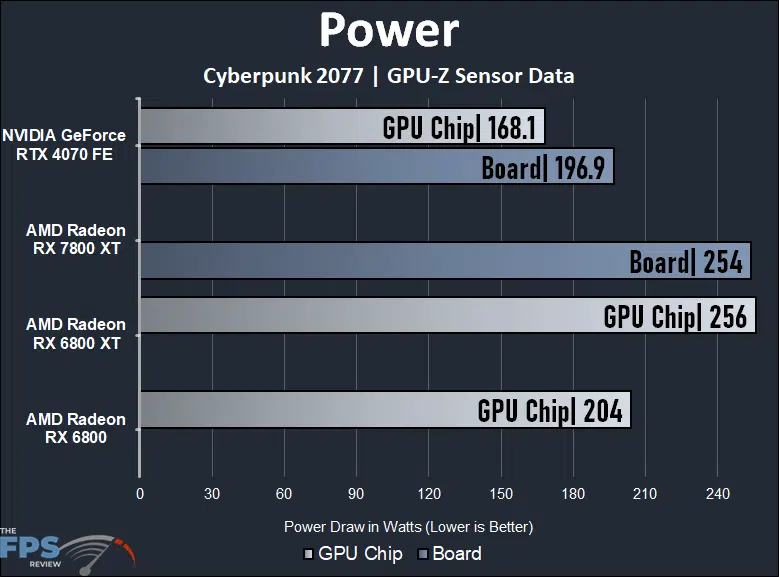
There are some holes in the power data, due to GPUz or the GPU not supporting the metric, for example, the Radeon RX 6800 XT lacks Board Power Draw, and the Radeon RX 7800 XT lacks GPU Chip Power Draw.
Overall, AMD claims the Total Board Power of the Radeon RX 7800 XT is up to 263W. In our testing, we saw a maximum of 254W board power as reported by GPU-Z. With this result, we can see that the Radeon RX 7800 XT consumes a crap ton more board power than the GeForce RTX 4070 FE does while gaming. The Radeon RX 7800 XT consumes 29% more, or 57W more power, than the GeForce RTX 4070 FE while gaming.
In terms of power usage, the Radeon RX 7800 XT’s board power is on par with the Radeon RX 6800 XT’s GPU Chip Power, which is a lot. There is no way around it, the Radeon RX 7800 XT is not power efficient. You are essentially getting similar performance to the Radeon RX 6800 XT, at the same power usage, with no improvement in efficiency at the same performance.
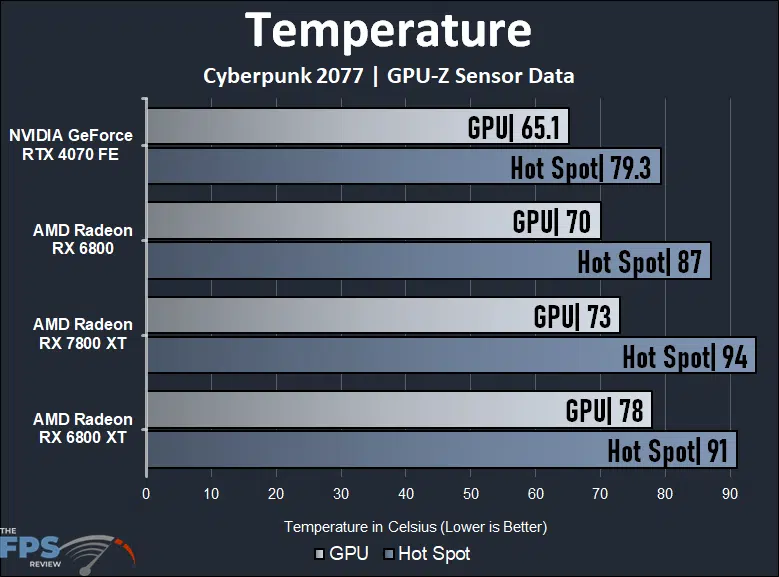
When testing temperature, we also found that the AMD Radeon RX 7800 XT made-by-AMD video card runs on the hotter side. While the GPU edge or package temp was below the Radeon RX 6800 XT by five degrees, which is good, the Hot Spot temperature was up three degrees to a maximum of 94c compared to 91c on the Radeon RX 6800 XT. When you compare the temperatures on the GeForce RTX 4070 Founders Edition, it is massively cooler on GPU and Hot Spot temps, by a very large degree.
Default GPU Clock Frequency
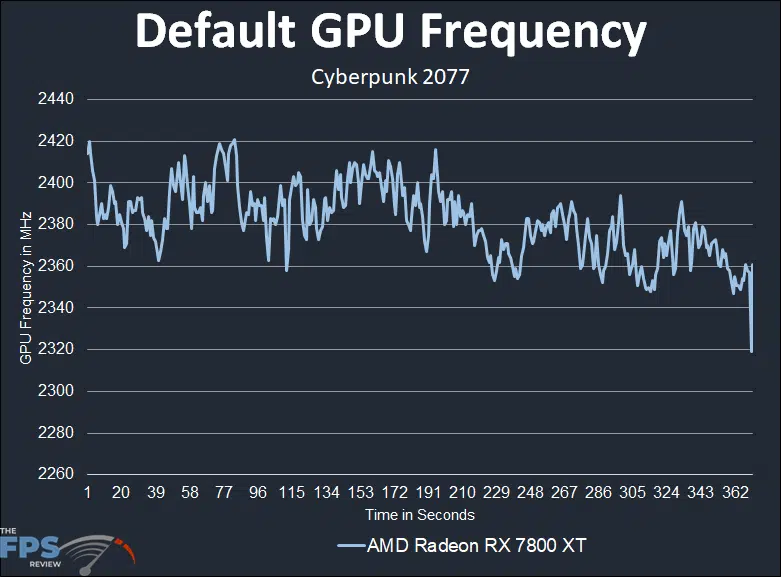
We also ran GPUz and logged the GPU frequency over time while gaming, to look at clock speeds. The Game GPU Clock is 2124MHz, and the Boost GPU Clock can run up to 2430MHz for the official spec. Using GPUz to record the GPU frequency metric it provides shows us that the clock speed is very dynamic, and ranges from 2350MHz-2420MHz while gaming. It never quite reached the 2430MHz maximum GPU Boost but still maintains its speed well above the Game GPU Clock of 2124MHz. The average clock speed over the entire run was: 2381MHz.
GPU-Z Sensor Data
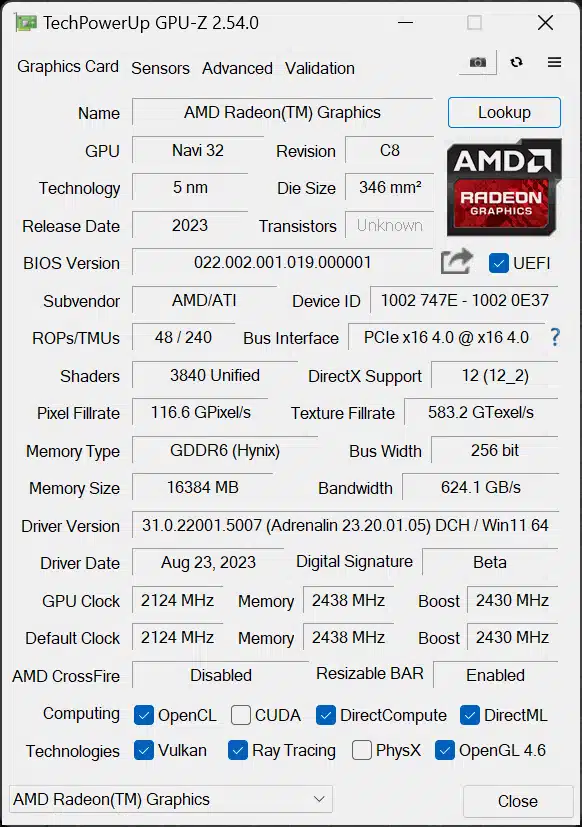
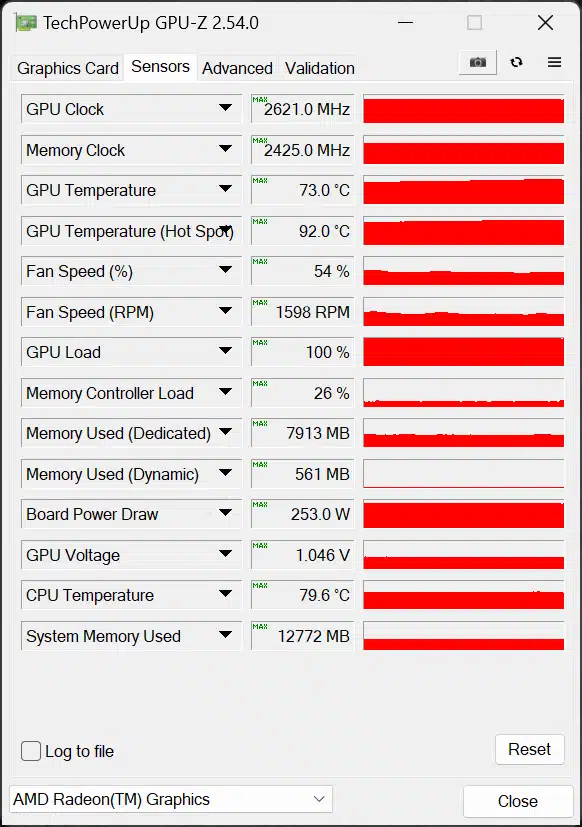
We can see that the GPU Voltage is 1.046V, at default, the fan speeds rose to 54% on automatic.
